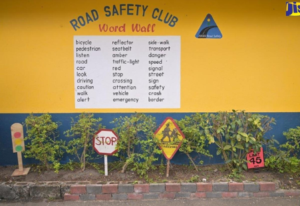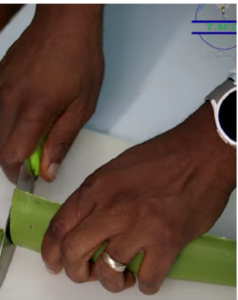It is not quixotic to be educated about current teaching & learning practices. Rather, it is wise to do so.
It should be noted that the most current practice is the new phenomenon of staying far from the brick and mortar classroom. Hence, entering cyberspace.
E- learning, distance learning via the Internet are just synonyms for online learning. Total online learning is set out to replace the traditional classroom of face to face interaction which is arguably the best way to learn.
This editorial piece will discuss online learning, its contribution yet insights of the underlying reasons for it.
The events of 2020 have thrust the learning experience online. While online learning has become an option to lesson delivery and learning, there are a number of motives( underlying reasons) beneath this form of learning for young children and teens, in my view.
The old adage remains true: Things are seldom what they seem, skimmed milk masquerade as cream.
Is online learning best? Is it ‘skimmed milk’? Has face to face interaction remained ‘cream’?
Admittedly, we have to consider these questions as we carefully consider the little ones, our children, and the future of the nation.
Too Small to Ignore
What an oxymoron! Children are too small to ignore. One could say that it is because they are so small why they can be easily ignored. On the other hand, it is because they are so small why they should not be ignored. We should defend them, the way they learn and what they learn.
Watchmen on Ward
Thus, parents, teachers, guardians, village, please wake up to observe students while they are in cyberspace!
Also, observe those who are left out of cyberspace!
Born-again teachers, school leaders, adults, parents, be the ‘watchmen and women on the ward’! Pray and speak up! Act!
Some Underlying Reasons
Firstly, the current online learning has affected many younger learners especially those from developing economies who , in many cases, may
only have access to limited resources.It is indeed a chain reaction because limited resources lead to disenfranchised learners.
In second place, but by no means a second place issue is the fact that with online learning, school administration and teachers especially Christian teachers will have limited avenues and reach to positively impact or influence learners.
But they will still be influenced. What happens if they are not fully monitored while online? Who is trying to reach them? How? In what ways? Why? We should critically think on these questions in light of the subject under discussion.
So, if one pays keen attention, disenfranchised children will eventually lead to the country having a higher percentage of illiteracy and eventually meaningless masses who will become dependent on government and government systems.
Dependency is toxic and reduces the fulsome use of God – given talents and gifts. Limited education would not contribute significantly to any career choice.
Defend the Disenfranchised
I therefore call upon other educators to defend the disenfranchised children. Partner with churches, educators including retired educators, non- government organizations. Develop learning kits or packages to reach the “ unreached” children/ students in our communities and the nation.
Parents, be wise, pray earnestly and peruse sites and messages that may pop up to influence learners while they are online using their devices. Monitor carefully!
Conclusion
Online learning should be carefully monitored. It should also be approached by learning about underlying motives. Only in these ways can it be appreciated as an alternative strategy while in a pandemic.






